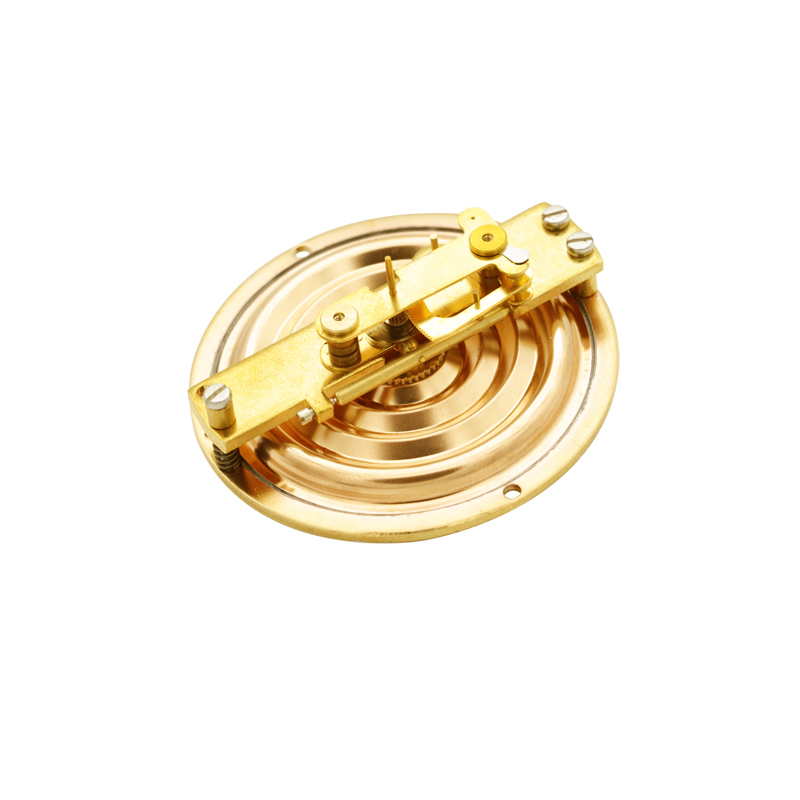
12 月 . 29, 2024 11:57 Back to list
Choosing the Right Differential Pressure Gauge for Accurate Psi Measurement
Understanding Differential Pressure Gauges An Essential Tool in Industry
In various industrial applications, monitoring pressure levels is crucial for maintaining operational efficiency and safety. One of the most effective instruments for this purpose is the differential pressure gauge. This article will explore what a differential pressure gauge is, its working principle, applications, and why it's important in industrial settings, particularly regarding measurements in psi (pounds per square inch).
What is a Differential Pressure Gauge?
A differential pressure gauge is a device that measures the difference in pressure between two points. This difference can indicate various operational conditions, such as flow rates, filter conditions, or process pressures. By providing a measure that reflects the disparity between two pressures, the differential pressure gauge plays a critical role in ensuring that systems operate within their desired parameters.
Working Principle
The operation of a differential pressure gauge is quite straightforward. It typically consists of two pressure taps connected to a sensing element, usually a diaphragm or a Bourdon tube. When fluid enters the gauge through the two taps, it creates a force on the sensing element proportional to the pressure difference. This difference is then translated into a readable output, usually displayed on a dial in psi.
For instance, in a filtration system, the differential pressure across a filter can indicate how clogged it is. An increase in the differential pressure suggests that the filter is becoming blocked and may need to be cleaned or replaced. Thus, monitoring the differential pressure allows operators to perform maintenance proactively, avoiding costly downtime.
Applications of Differential Pressure Gauges
Differential pressure gauges are used in a variety of applications across multiple industries
1. HVAC Systems In heating, ventilation, and air conditioning, these gauges help monitor air filters and ducts to ensure optimal airflow and energy efficiency. 2. Process Control In chemical and petrochemical industries, maintaining proper pressure differentials is crucial for regulating the flow of materials and ensuring safe reactions take place.
differential pressure gauge psi product

3. Water Treatment In water filtration systems, differential pressure gauges allow operators to monitor the pressure across membranes or filters, ensuring that contaminants are effectively removed.
4. Oil and Gas These gauges play a significant role in pipeline monitoring, ensuring that pressure levels remain safe and effective while transporting oil and gas.
5. Pharmaceutical Industry In the production of medications, maintaining strict pressure conditions is crucial for compliance and safety, making differential pressure gauges invaluable.
Importance of Precise Measurements
Accurate measurements provided by differential pressure gauges, particularly in psi, are vital for the following reasons
- Safety Monitoring differential pressure reduces the risk of equipment failure, leaks, or blowouts, particularly in high-pressure systems.
- Efficiency By allowing for timely maintenance of filters and other components, companies can ensure that systems are running efficiently, avoiding unexpected downtimes.
- Regulatory Compliance Many industries are subject to regulatory standards that necessitate precise pressure monitoring. Differential pressure gauges help meet these standards by providing reliable data.
Conclusion
In conclusion, differential pressure gauges are essential instruments in various industrial applications. They provide critical measurements that enhance safety, efficiency, and compliance. Understanding the functionality and applications of these gauges allows industries to leverage them effectively, promoting operational excellence and safety. For any organization dealing with pressure-sensitive processes, investing in quality differential pressure gauges is not just a prudent choice—it's a necessity.
-
High-Precision 5 Valve Manifold Differential Pressure Gauge Suppliers
NewsApr.29,2025
-
High-Precision Diaphragm Vacuum Pressure Gauges Manufacturers & Quotes
NewsApr.29,2025
-
Omega Differential Pressure Gauges High Accuracy & Durability
NewsApr.28,2025
-
Low Pressure Differential Pressure Gauges Precision Solutions & Quotes
NewsApr.28,2025
-
Digital Diaphragm Pressure Gaauge Precision Measurement & OEM Quotes
NewsApr.28,2025
-
Differential Pressure Gauge China Price High-Accuracy & Best Quotes
NewsApr.28,2025
